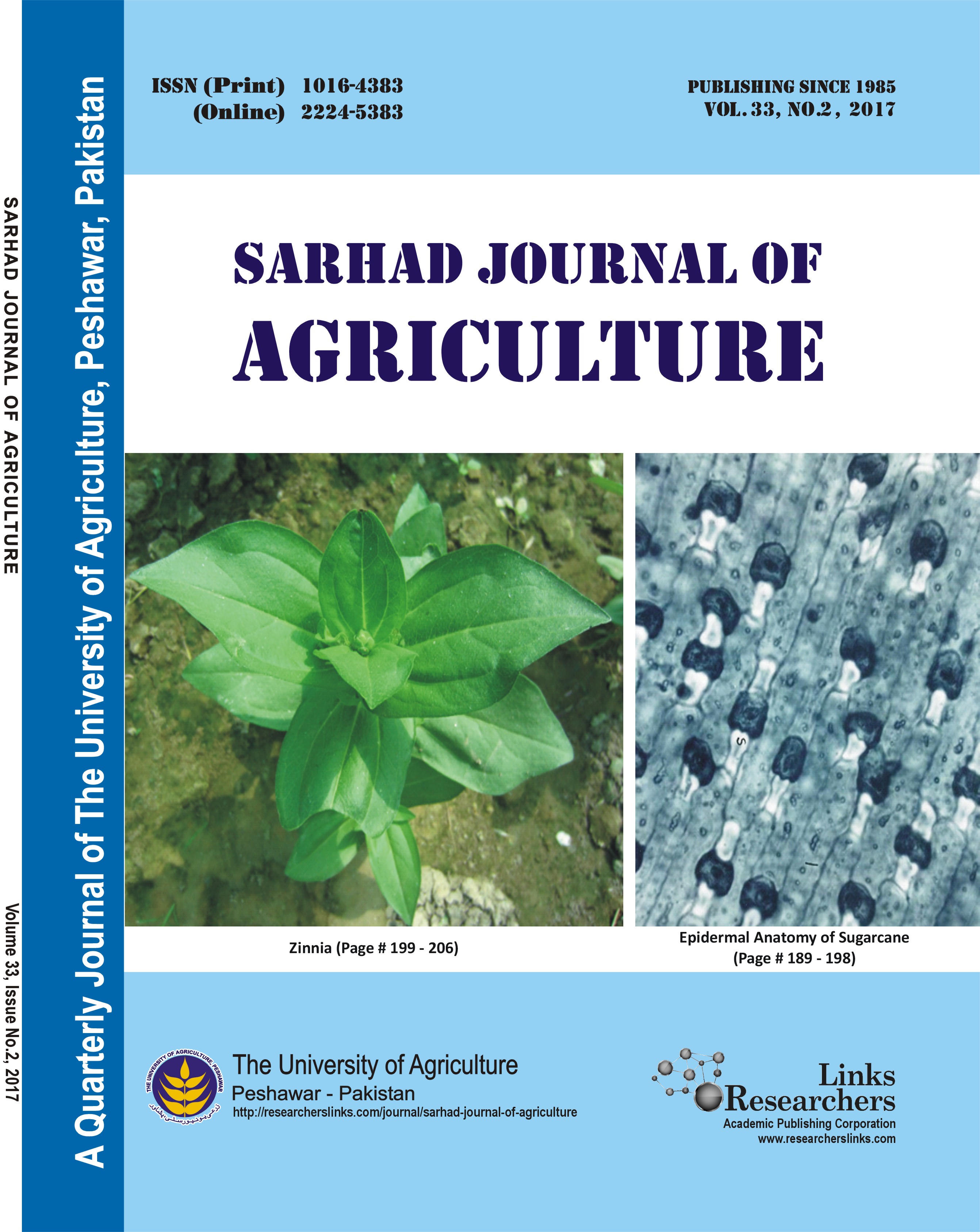Exploring the Constraints and Potential Benefits Associated with Family Farming for Livelihood Improvement in Highlands of Pakistan
Exploring the Constraints and Potential Benefits Associated with Family Farming for Livelihood Improvement in Highlands of Pakistan
Raheel Saqib1*, Muhammad Luqman2, Saleem Ashraf3, Tahir Munir Butt4, Abdur Rehman5, Imtiaz Hussain6 and Muhammad Umer Mehmood2
ABSTRACT
To share on other social networks, click on any share button. What are these?







